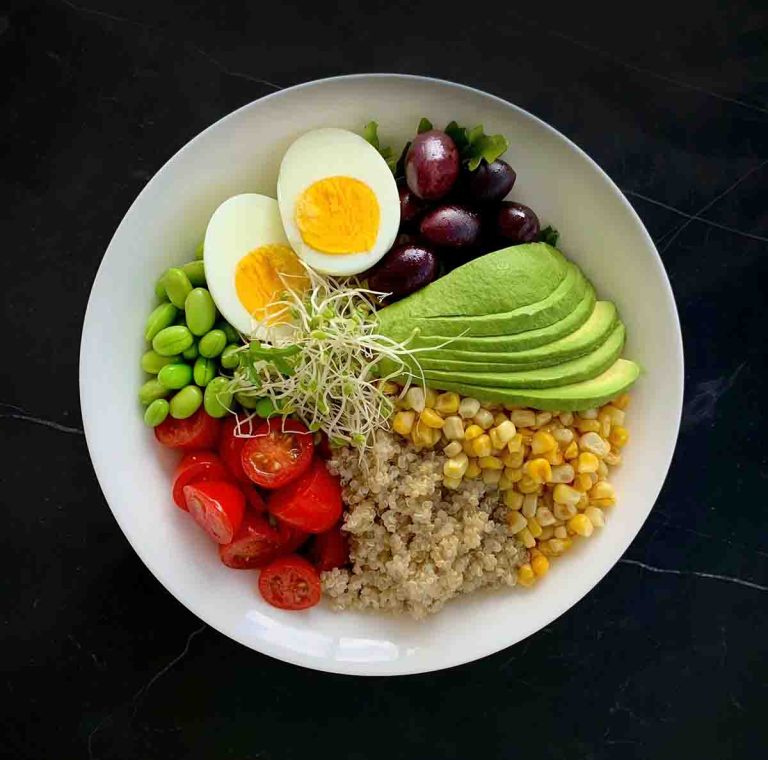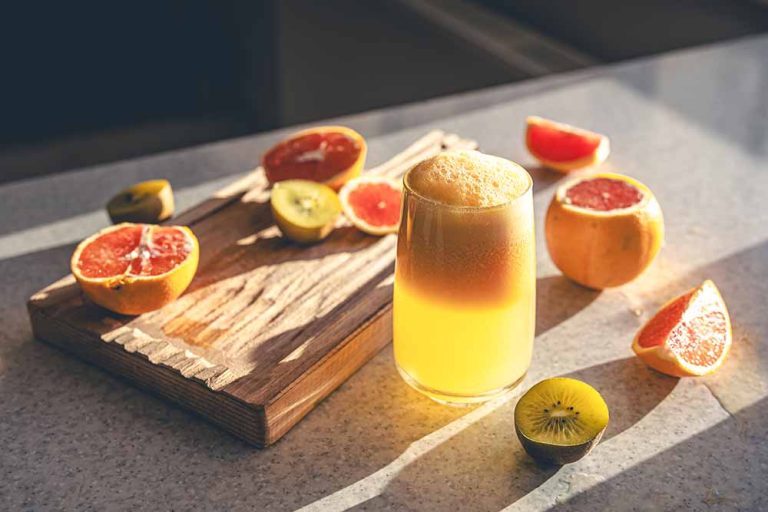On this page
Forget expensive skin serums for a minute. The foods you put on your plate might hold the real secret to that anti-ageing effect you’re after.
Let’s be really honest— getting healthy, glowing skin feels like a never-ending battle. Between conflicting advice and endless product recommendations, it’s hard to know what actually works. But here’s something that might surprise you: while the beauty industry wants you to believe the answer lies in the latest $100 cream, science increasingly points to your grocery list as the real MVP of skin health.
Nutrient Dense Foods That Actually Work for Your Skin
- Fatty Fish: Rich in omega-3s, acts as natural moisturizer.
- Oysters: High in zinc for skin healing and collagen maintenance.
- Leafy Greens: Contains vitamin K for dark circles and even skin tone.
- Avocados: Provides healthy fats and vitamin E for skin flexibility.
- Bone Broth: Natural source of collagen and hyaluronic acid.
- Citrus Fruits: Rich in vitamin C for collagen production.
Fatty Fish
If there’s one nutrient dense food group that dermatologists can’t stop raving about for skin health, it’s fatty fish. Research by Dr. Zoe Diana Draelos published in the Journal of Cosmetic Dermatology shows that the omega-3s found in salmon, mackerel, and sardines act like natural moisturizers for your skin.
They help maintain your skin’s lipid barrier, which keeps moisture in and irritants out. But it’s not just about hydration—these fish also pack anti-inflammatory properties that can help calm angry, red skin.
Oysters
Here’s something that might surprise you: oysters are actually skincare powerhouses. While they might not be on your regular menu, maybe they should be. Among nutrient dense foods, oysters stand out for their exceptionally high zinc content, crucial for skin healing and maintaining collagen levels. Can’t stomach oysters? Don’t worry—we’ll cover alternatives shortly.
Leafy Greens
Kale, spinach, and collard greens might seem like obvious healthy choices, but there’s a reason why they’re skincare superstars. Leafy greens are nutrient-dense foods packed with vitamin K and other nutrients that help combat dark circles and promote even skin tone. And unlike many trending “superfoods,” their benefits are backed by decades of research.
Avocados
Yes, millennials were onto something with their avocado toast obsession. Dr. Patricia Farris’s research in the Journal of Clinical and Aesthetic Dermatology confirms , as a nutrient-dense food, avocados deliver healthy fats that help keep skin flexible and moisturized.They’re also packed with vitamin E, which helps protect your skin from oxidative damage—the stuff that leads to premature aging.
Bone Broth
While collagen supplements are having a moment, bone broth has been delivering skin-supporting nutrients for centuries. This nutrient dense food provides collagen, hyaluronic acid, and minerals that support skin structure. Think of it as a liquid multivitamin for your skin, delivering these nutrients in their most natural, bioavailable form.
Citrus Fruits
Oranges, lemons, and grapefruits don’t just wake up your taste buds—they help wake up your skin too. Citrus fruits are nutrient-dense foods rich in vitamin C, crucial for collagen production, helping maintain skin’s strength and elasticity. Plus, this vitamin C comes packaged with other beneficial compounds that work together to support skin health better than any isolated supplement could.
Overhyped vs Nutrient Dense Foods for Skin
Dark chocolates
While dark chocolate contains antioxidants, you’d need to eat an unrealistic amount to see skin benefits. Plus, the sugar content might actually work against your skin goals. Dr. Farris’s research suggests that high sugar intake can contribute to skin inflammation and accelerated aging—definitely not what you’re going for.
Generic Supplements
Unless you have a specific deficiency (confirmed by blood work), most beauty supplements are unlikely to make a noticeable difference in your skin. Dr. Draelos’s research indicates that nutrients from whole food sources are generally more effective than isolated supplements.
The All-Important Hydration Factor
Here’s something often overlooked in the skin health equation: staying hydrated and pairing it with nutrient dense foods matters more than you think.
While staying hydrated is crucial, not all water delivers the same benefits.
Natural mineral water containing silica can support collagen production and skin elasticity in ways that regular filtered or reverse-osmosis purified water can’t. Silica is often absent in filtered drinking water, making your choice of hydration important when you want the best results for your skin.
Seeing Results
The key to seeing results isn’t following some complicated eating plan and as we mentioned, isn’t necessarily down to expensive serums—it’s about making smart choices and adding more of the good stuff to your plate. Try these practical tips:
– Start your day with a handful of berries or citrus fruit—both are nutrient-dense foods.
– Incorporate nutrient dense foods like fatty fish into your menu twice a week.
– Throw a handful of leafy greens into your morning smoothie
– Keep cut vegetables ready for easy snacking
– Sip on bone broth between meals when you need a protein boost
– Make avocado your go-to healthy fat source
– Choose mineral-rich water over regular filtered options
Always be ready: prep your skin-superfoods in batches ahead of time. Spend an hour on Sunday washing and chopping vegetables, portioning out fish for the week, and maybe even making a batch of bone broth. This way, you’re not trying to make healthy choices when you’re already hungry and tired.
Remember there’s no miracle food that will transform your skin overnight, and having one superfood-meal a week is not going to make any difference. You’ve got to incorporate this approach into your diet and be consistent about it.
—
Sources:
– Draelos, Z. D. (2021). Nutrition and the Skin. Journal of Cosmetic Dermatology
– Farris, P. K. (2023). Nutritional Approaches to Skin Health. Journal of Clinical and Aesthetic Dermatology




